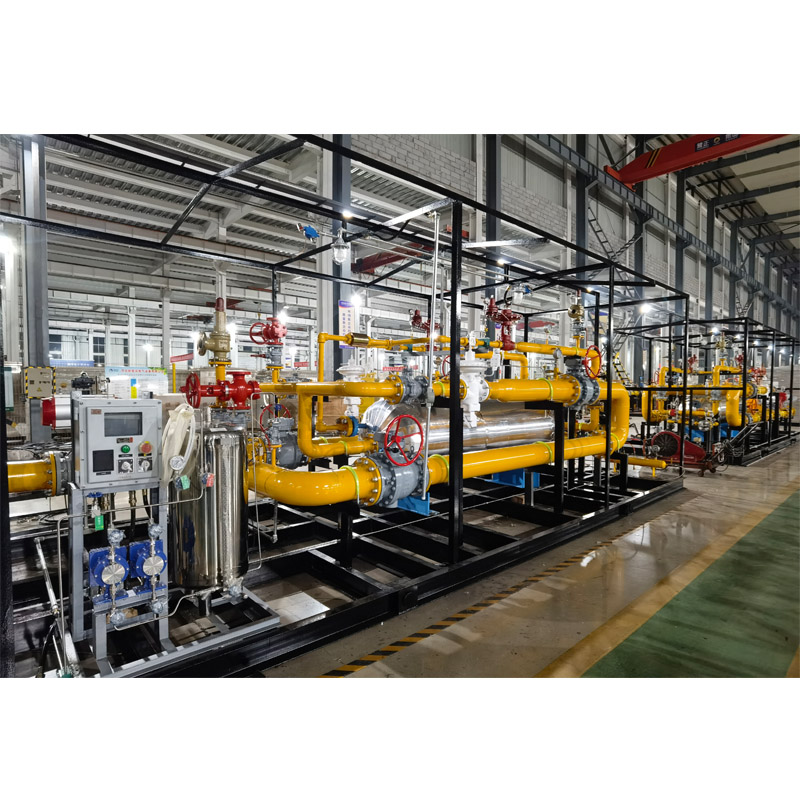
Nov . 12, 2024 14:21
Back to list
cyclone separator
Understanding Cyclone Separators A Comprehensive Overview
Cyclone separators are pivotal components used in various industrial applications to separate particulate matter from gases or liquids through the centrifugal force generated by a rotating stream. This technology plays a critical role in air and liquid filtration systems, dust collection, and even in pollution control, making it a vital process in manufacturing and environmental protection.
How Cyclone Separators Work
The design of a cyclone separator is relatively simple but highly effective. It typically consists of a cylindrical chamber with a conical bottom. When a gas or liquid containing particles enters the cyclone, it is forced into a swirling motion due to the design of the separator. This rotation creates a centrifugal force that separates heavier particles from the lighter gas or liquid.
As the mixture spins, the denser particles are flung outward towards the walls of the cyclone due to the centrifugal force, and they eventually settle down and are collected in the conical section. The cleaner gas or liquid then exits through an outlet at the top of the cyclone. The separation efficiency is influenced by factors such as the flow rate, the size of the particles, and the design of the cyclone itself.
Applications of Cyclone Separators
Cyclone separators are used across various industries for different purposes. In the agricultural sector, they can be deployed in grain processing facilities to separate dust and other small debris from harvested grains. In the manufacturing industry, cyclones are commonly used in dust collection systems to maintain a clean working environment by removing airborne particles generated during production processes.
Additionally, cyclone separators play a crucial role in environmental management by helping to reduce emissions. For instance, power plants utilize cyclones to capture fly ash and other particulates that would otherwise be released into the atmosphere. Similarly, in the petrochemical industry, they help in separating crude oil from water and solids during the refining process, thereby improving efficiency and safety.
cyclone separator

Advantages of Cyclone Separators
One of the primary advantages of cyclone separators is their ability to handle large volumes of gas and liquid while maintaining a small footprint, making them space-efficient. They do not require moving parts, which minimizes maintenance and operational costs. Furthermore, cyclones can operate effectively without the need for additional filters, which can wear out over time.
Cyclone separators are also versatile; they can be designed to cater to specific industrial needs by adjusting parameters such as size, shape, and inlet configuration. Their simplicity in design contributes to low capital costs compared to other separation technologies, such as bag filters or scrubbers.
Limitations of Cyclone Separators
Despite their advantages, cyclone separators have limitations. Their efficiency decreases for smaller particles, typically less than 10 micrometers, as these particles may not be sufficiently affected by the centrifugal force. The separation efficiency is also impacted by the flow rate; higher velocities may lead to particle re-entrainment, where larger particles are swept back into the airflow.
Moreover, while cyclones can effectively reduce particulate matter, they may not eliminate all pollutants, particularly gases or vapors. Therefore, in applications requiring higher purity levels, additional filtration or scrubbing technologies might be necessary.
Conclusion
In summary, cyclone separators are essential tools in many industries, offering efficient and cost-effective solutions for separating particles from gases and liquids. Their simple design, ease of maintenance, and versatility make them a popular choice for dust control and pollution management. As industries continue to seek ways to improve efficiency and reduce environmental impact, the role of cyclone separators will undoubtedly remain significant, contributing to cleaner air and optimized processes.
Next:
Latest news
-
Safety Valve Spring-Loaded Design Overpressure ProtectionNewsJul.25,2025
-
Precision Voltage Regulator AC5 Accuracy Grade PerformanceNewsJul.25,2025
-
Natural Gas Pressure Regulating Skid Industrial Pipeline ApplicationsNewsJul.25,2025
-
Natural Gas Filter Stainless Steel Mesh Element DesignNewsJul.25,2025
-
Gas Pressure Regulator Valve Direct-Acting Spring-Loaded DesignNewsJul.25,2025
-
Decompression Equipment Multi-Stage Heat Exchange System DesignNewsJul.25,2025

